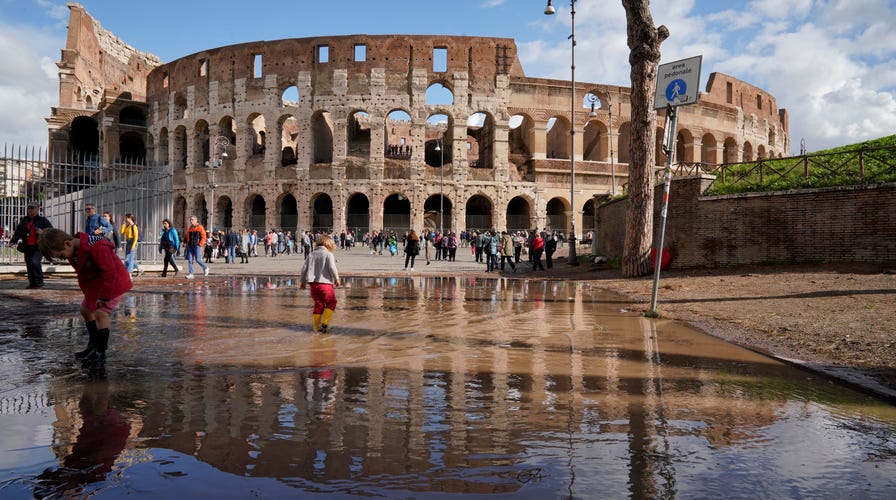Fox News Flash top headlines for July 28
Fox News Flash top headlines are here. Check out what's clicking on Foxnews.com.
A new study suggests the Mediterranean Sea was the warmest during the Roman Empire than any other time in the past 2,000 years
The research, published in Scientific Reports, notes the Mediterranean was 3.6 degrees Fahrenheit (2 degrees Celsius) warmer "than average values for the late centuries for the Sicily and Western Mediterranean regions."
The researchers also found there was a "general cooling trend" after the Roman Empire ended in 500 A.D. "We hypothesis the potential link between this Roman Climatic Optimum and the expansion and subsequent decline of the Roman Empire," the researchers wrote in the study's abstract.
RADAR REVEALS ENTIRE ANCIENT ROMAN CITY IN STUNNING DETAIL
"For the first time, we can state the Roman period was the warmest period of time of the last 2,000 years, and these conditions lasted for 500 years,” University of Barcelona professor Isabel Cacho said in a statement.
The researchers, from Spain and Italy, looked at ratios of magnesium to calcite from planktonic foraminifer Globigerinoides ruber, a fossilized amoeba, in the Sicily Channel, to come up with their conclusions.
The fossilized amoeba was recovered during a 2014 oceanographic expedition.
The Mediterranean Sea is "semi-closed," which according to the statement, makes it "extremely vulnerable to modern and past climate changes."
Ancient Rome has been hard to study “since it coincided with important cultural changes that took place around the Mediterranean," the study's lead author Giulia Margaritelli and co-author Fabrizio Lirer, explained.
"The study of the climate of the past is now the only tool to analyze the dynamics of the climate system of the Earth in different conditions from the current ones, and it is essential to test the validity of the mid and long term prediction models," they added.
50 GRAVES OF SLAVED WHO TOILED AT A ROMAN VILLA UNEARTHED IN ENGLAND
The Roman Empire continues to reveal its secrets. Researchers, for example, recently discovered that some Vesuvius victims "baked" as they died. Experts also recently discovered ancient brain matter that was turned into glass as a result of the volcanic eruption that devastated the city.
The Roman city of Pompeii was devastated following the eruption of Mount Vesuvius in 79 A.D. Pompeii was quickly buried by volcanic ash, killing about 2,000 of the city’s residents, according to History.com.
In October 2019, a pair of 2,000-year-old scrolls believed to have belonged to the family of Julius Caesar were virtually "unwrapped" for the first time.
In February, a shrine containing a sarcophagus dating back to the 6th century B.C. and dedicated to the legendary founder of Rome, Romulus, was discovered after archaeologists excavated the Roman Forum and stumbled upon the discovery.
According to legend, Romulus founded the city in 753 B.C. after he murdered his twin brother Remus following an argument over where the city should be built.









































